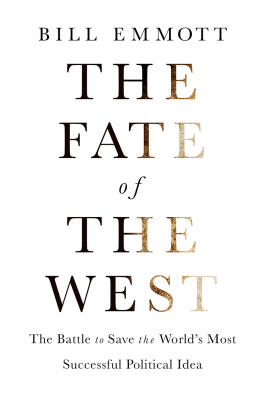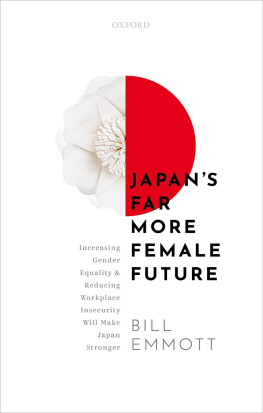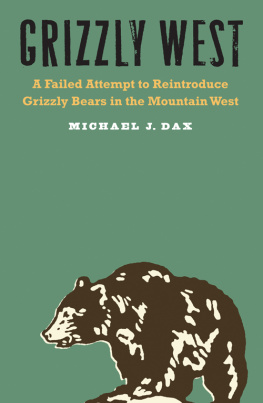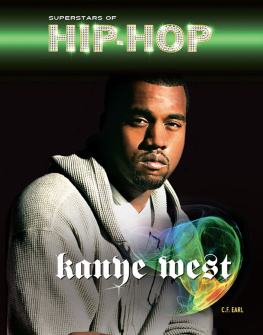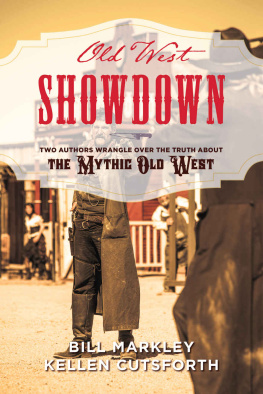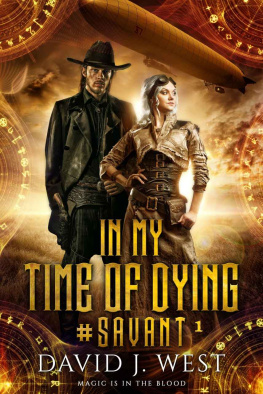THE FATE OF THE WEST
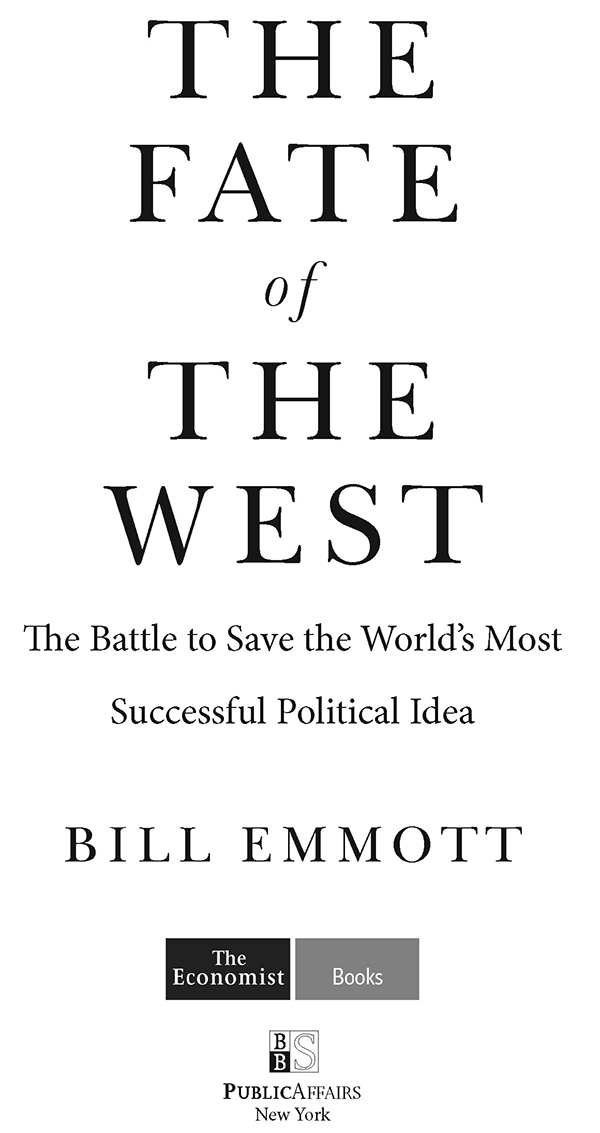
The Economist in Association with Profile Books Ltd. and PublicAffairs
Copyright 2017 by Bill Emmott
First published in 2017 by Profile Books Ltd. in Great Britain.
Published in 2017 in the United States by PublicAffairs, an imprint of Perseus Books, LLC, a subsidiary of Hachette Book Group, Inc.
All rights reserved.
Printed in the United States of America.
No part of this book may be reproduced, stored in or introduced into a retrieval system, or transmitted, in any form or by any means (electronic, mechanical, photocopying, recording or otherwise), without the prior written permission of both the copyright owner and the publisher of this book, except in the case of brief quotations embodied in critical articles and reviews. For information, address PublicAffairs, 1290 Avenue of the Americas, New York, NY 10104.
The greatest care has been taken in compiling this book. However, no responsibility can be accepted by the publishers or compilers for the accuracy of the information presented.
Where opinion is expressed it is that of the author and does not necessarily coincide with the editorial views of The Economist Newspaper.
While every effort has been made to contact copyright-holders of material produced or cited in this book, in the case of those it has not been possible to contact successfully, the author and publishers will be glad to make amendments in further editions.
PublicAffairs books are available at special discounts for bulk purchases in the U.S. by corporations, institutions, and other organizations. For more information, please contact the Special Markets Department at Perseus Books, 2300 Chestnut Street, Suite 200, Philadelphia, PA 19103, call (800) 810-4145, ext. 5000, or e-mail special.markets@perseusbooks.com.
Library of Congress Control Number: 2017930978
ISBN 978-1-61039-780-3 (hardcover)
ISBN 978-1-61039-781-0 (e-book)
For Carol
Figures
Introduction: The idea of the West
FOR AS LONG AS ANY OF US CAN REMEMBER, to be modern has meant to be Western, and to be Western has meant being at the forefront of pretty much everything of science, of social change, of culture, of affluence, of influence, of power in all its forms. Not everyone has liked this state of affairs, even inside Western countries themselves, but regardless of sour grapes or ideological discontent this Western dominance of modernity has become such an established fact that we have lost sight of quite why it is so. We have also lost sight of quite who we mean by Westerners, albeit for the benign reason that neither modernity nor the features that bring it are any longer exclusively associated with geography, any longer exclusively the possession of western Europe, North America and those countries elsewhere that shared European origins through colonial histories. Japan, Taiwan, Slovenia and South Korea are now as intrinsically modern and Western as are Sweden, France and Canada. For what they share is not geography, not history, but an idea.
It is a powerful idea, one that matters. It matters, most obviously, because it has brought levels of prosperity, well-being, security, stability, peace and scientific progress that in previous eras would have felt simply inconceivable. It matters, right now, because it is under threat and under attack, not principally from outside the West but from within. It is under attack for the good reason that it has recently failed to deliver enough of what citizens have come to expect of it, notably fairness, prosperity and security, but with the bad consequence that people and forces that stand for distinctly unWestern ideas, chief among them Donald Trump, have risen to prominence and power. Those ideas could, if allowed to prevail and become entrenched, destroy the West and much of what it has achieved.
Such a defeat would be a tragedy, of historic dimensions. For the idea of the West has provided more freedom and opportunities to more people in every country that has adopted it, than any other way of organising a society has ever achieved before. It truly has been the worlds most successful political idea, by far. One reason why so many have liked it, and why others have been converging on it, is that when nurtured it brings a virtuous circle, by which freedom and the widespread chance to create new things and lead relatively unconstrained lives bring prosperity, stability and security, which in turn provides the social trust and economic resources that make further progress possible.
We often call this idea liberalism, or liberal democracy, but neither term quite commands either the heart or the brain. The heart demurs because the words sound too technical, philosophical or academic to stir the passions. They can anyway confuse, as to some Americans the term liberal has become an insult connoting what they see as the excessive use of taxpayers money to cosset undeserving citizens and distort markets, while to others, especially in Europe, by adding the prefix neo the same word can insult by connoting an advocate of brutal market forces. The brain rebels at this confusion but also demurs on grounds that liberal democracy is a tautology how could there be an illiberal democracy, since democracy is supposed to give power to the demos, the people? or that in modern use the word democracy must carry little meaning beyond describing a mechanical process than can be used or abused at will.
Behind those phrases, however, lie two other crucial words one could call them ideals or even lodestars. The first is openness, for the Latin liber or freedom expressed through liberalism is both a desired outcome for the individual and a statement of the condition of any society in which such a collection of free individuals resides. Such a society is one that is thereby open to new ideas, new elites, new circumstances and new opportunities whether of trade in goods and services or of culture and science. It is thus a society not directed by a central intelligence but formed by the collective desires and actions of its members. Which leads to the second ideal or lodestar: equality.
Openness has required a steadily advancing notion of equality in order to make its bracing winds work and be accepted by society at large over the long term. Otherwise, conflicts inevitably arise between free individuals, with no means available to temper or resolve them, as some come to feel neglected, disadvantaged, powerless or left behind. This is exactly what has happened recently in the United States and in many countries of western Europe. The feeling of equality has been lost, neglected or simply eroded.
This conflict-resolving, socially soothing equality is not principally one of income or wealth though widening gaps between rich and poor can affect equalitys practical meaning, for good or ill but rather of voice, rights and treatment, of having an equal say and participation in the openness that is being established. It is what in ancient Greek democracy was called isonomia, equality of political rights, which also crucially encompasses equality before the law. Thus in shorthand we can call it citizenship.
In ancient Greece isonomia had, and has since had, various extensions such as the equal right to speak in a parliament, but such things represent particular choices made by particular political systems. It is the principle of equality of rights and of voice for all adult citizens that connects together all countries that operate according to the rule of law, that protect freedom of speech and information, and that choose to provide political accountability through regular free elections based on a universal adult franchise.
The sense of shared interest that such equality represents has further encouraged societies to choose to make collective provision, through laws or the use of tax revenues, for some public goods that are deemed to be of general societal benefit, such as access to mandatory and state-financed education, to forms of social welfare in case of hardship, to broadly available and affordable health care, and to security provided by armed forces and police. That
Next page
